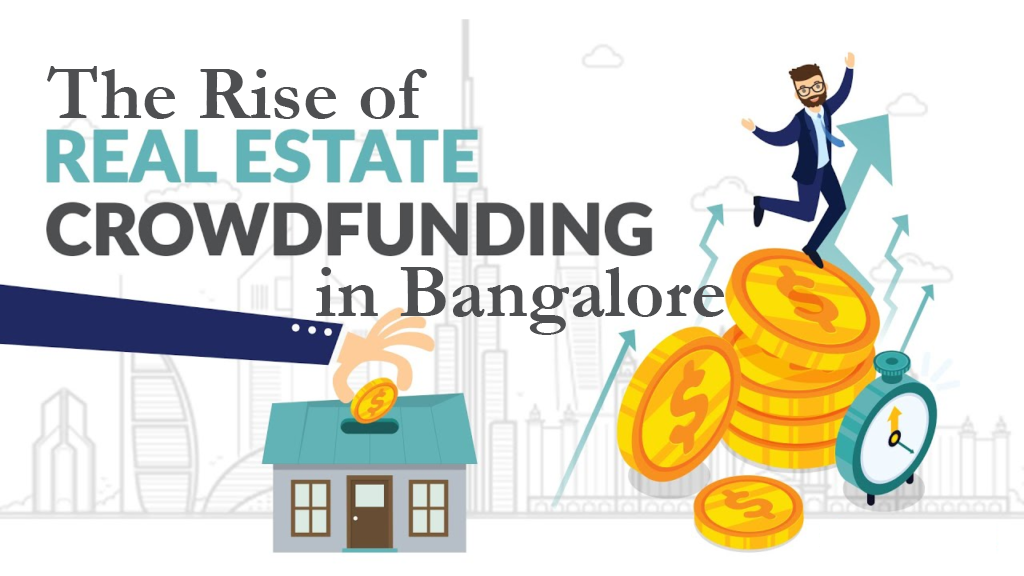The Rise of Real Estate Crowdfunding in Bangalore
Read latest blogs and articles from Housystan

The Information mentioned here was last updated on:
29/1/2026The Rise of Real Estate Crowdfunding in Bangalore
Bangalore, known as the Silicon Valley of India, is not only famed for its tech industry but is also emerging as a hotspot for innovative investment opportunities. One trend gaining momentum in this vibrant city is real estate crowdfunding. This progressive approach allows everyday investors to partake in property investments without the hefty price tag. Let’s dive into the realm of real estate crowdfunding in Bangalore and explore why it’s making waves.
Understanding Real Estate Crowdfunding
- Verified Tenants/Buyers
- Unlimited Property Listing
- Zero subscription/charges fee
Real estate crowdfunding is a method of raising capital for property ventures through small contributions from a large number of people. Unlike traditional real estate investments, this approach leverages online platforms to pool funds, democratizing access to property ownership. Here’s how it works:
- Platforms: Websites designed to connect investors with real estate projects.
- Projects: Include residential, commercial, and mixed-use developments.
- Investors: Individuals invest smaller amounts (sometimes as low as INR 10,000) and receive a share in the property’s income and potential appreciation.
Why Bangalore?
Bangalore’s bursting tech scene provides a fertile ground for real estate crowdfunding for several reasons:
- Tech Savvy Population: The city’s population is well-versed in digital solutions, making them ideal participants and promoters of online investment platforms.
- Demand for Housing: A continuous influx of professionals looking for housing options ensures a robust real estate market.
- Growth Potential: As a growing metropolis, Bangalore offers promising opportunities for appreciation in real estate values.
Key Benefits of Real Estate Crowdfunding
Real estate crowdfunding offers numerous advantages over traditional investment approaches:
1. Lower Barrier to Entry: Unlike conventional property investments, which usually require substantial capital, crowdfunding allows participation with a minimal investment.
2. Diversification: Investors can spread their money across various properties, reducing risk.
3. Passive Income: Participants can earn returns without the hassles of property management.
4. Transparency and Access: With online platforms, investors gain access to detailed project information and track progress easily.
5. Community Impact: Crowdfunding supports local developers and projects, fostering economic growth.
Major Real Estate Crowdfunding Platforms in Bangalore
Several platforms are paving the way for real estate crowdfunding in Bangalore. Here’s a look at a few prominent names:
- PropertyShare: Facilitates investments in commercial real estate, offering detailed financial analysis.
- SmartOwner: Specializes in large-scale residential and commercial projects with attractive returns.
- RealtyShares: Focuses on both residential and commercial spaces, providing a user-friendly interface with helpful resources for beginner investors.
Steps to Get Started with Real Estate Crowdfunding
Embarking on a real estate crowdfunding journey involves several straightforward steps:
1. Research Platforms: Look for platforms with good reviews and verified projects.
2. Review Opportunities: Analyze available projects, considering factors like location, developer reputation, and projected ROI.
3. Investment Strategy: Decide on the amount you’re willing to invest and how you want to diversify.
4. Registration: Sign up on your chosen platform and complete necessary KYC formalities.
5. Portfolio Management: Regularly monitor your investments and reinvest returns when viable opportunities arise.
Potential Risks and Considerations
While real estate crowdfunding opens up new vistas, it’s essential to be aware of potential risks:
- Market Volatility: Real estate markets can fluctuate, affecting returns.
- Project Delays: Development projects may face unforeseen obstacles, impacting timelines and profitability.
- Platform Reliability: It’s crucial to select trustworthy platforms with a good track record.
Legal Landscape and Regulations
India’s regulatory framework for real estate crowdfunding is still evolving. The Securities and Exchange Board of India (SEBI) and the Reserve Bank of India (RBI) have set guidelines to ensure transparency and protect investors. Understanding these regulations ensures informed decision-making:
- Investor Protection: Ensures clarity in transactions and protects against fraud.
- Minimized Risk: Standardizes operations to prevent financial misconduct.
The Impact on Bangalore’s Real Estate Market
The influx of real estate crowdfunding has noteworthy implications on the local market:
- Increased Foreign Investment: Crowdfunding opens doors for NRIs and international investors looking to tap into Bangalore’s growth.
- Boost in Development: It incentivizes small- and medium-sized developers to launch projects, accelerating urban development.
- Sustainable Practices: Encourages the adoption of green initiatives and smart technologies in projects, appealing to modern investors.
Future of Real Estate Crowdfunding in Bangalore
The future of real estate crowdfunding in Bangalore looks promising, with technology and investment interests aligning to support this trend. Upcoming advancements may include:
- Enhanced Platforms: Use of AI and blockchain to ensure more accurate property valuations and secure transactions.
- Broader Involvement: More sectors like hospitality and retail could harness crowdfunding, leading to diversified investment opportunities.
- Government Initiatives: Possible tax incentives and policy support to encourage citizen involvement in real estate investment.
The rise of real estate crowdfunding in Bangalore signifies a shift towards more inclusive and accessible investment practices, making it a phenomenon to watch in the coming years. Keeping an eye on trends and regulations will be key for investors and developers aiming to tap into this burgeoning market.